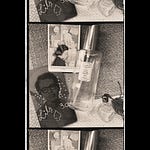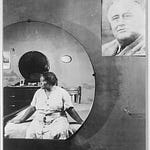“…in this here place, we flesh; flesh that weeps, laughs, flesh that dances…”
– Grandma Baby Suggs, from Toni Morrison’s novel ‘Beloved’
Let me tell you about this bluesman who meets the “devil” at the crossroads and gives his one precious life. He exists outside the nuclear family, but not outside the Black family, the village. He exists outside the church, but he’s always had soul. He doesn’t encourage his people to be “good”. He invites them to be free. It’s not with words, it’s with a sonic feeling he is ferrying on through, a gathering where daylight conventions are shed and joy prevails unhindered.
I have said in the past that the absence of certain cards in the deck is invitation to go back and retrieve. Like the books dropped from the bibles of the enslaved. Particularly in the case of these Black spirit cards, given that much of the realm of the spirit is unseen, thus disbelieved. Seamlessly woven through our present culture, a song that hides a map, and a braid that hides a seed. What is not spoken or at once obvious sometimes carries more power than what is.
So it is with the South Carolina tale of Louie Alexander, the musician who allegedly meets this devil at the crossroads and becomes the greatest fiddler alive. It’s noted he has no interest in women, or a day job, or a Sunday service. That the most blazing, incandescent moments of his life are the nights he provides pressure relief to his community through song. They dance through the weekend, missing church (but not worship, in the end) and some even missing work on Monday. He is a threat to whom? He is a problem why? What are his people leaving behind to touch the extraordinary beauty on those strings?
We praise the Conqueror, High John, for what he led his people from. We laud the people who could fly. And know exactly why they are flying. We whisper and weep for the ones who walked into the ocean or dove from the sides of transatlantic ships.
What are the Blues?
And who is the Devil? He’s not at the crossroads. He’s standing at the back of the plantation church auditing the sermon. He’s striding through the field with a whip in his hand. He’s circling the auction block. He’s the one you know, he’s the hell you remember in your bones. God is everywhere, but the Devil is in the big house.
The preacher tells the Bluesman to keep his head down, to find a good woman, to populate the fields, to hold the right notes, in the glory of morning; to corral these people into a safe life. To blend, lest we all bleed. To cover what is tender, to hide what is too sweet, to remember what they tell us, to repeat even less.
And the Bluesman kept to this until the wound broke its stitches and the sound rose on out. Until the Blue broke forth. Until the doors flew open and the wail came pouring through. The Devil heard this, and the preacher trembled for what he thought the blue notes brought.
I would wager that the “devil” who gave Louie his best gift was not the same one who came, in the end, to collect his life.
Notes don’t summon devils. Crossroads don’t steal your soul. And Audre said, even in silence we were afraid.
In the queerness missing from that film, in the cards we don’t pull, in the lines between the lines and the notes under notes, there is a lot to sing about. A lot of stories to tell. A lot to ask from our spirits at these intersections of one path and another. Until the day the Devil doesn’t own the daylight, and stalk our lamps by night. Until the big house falls, nature takes back its fields, we are woken by the song, to dance in the streets.









Share this post